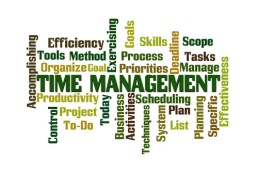Does your Business have 2020 Vision?
Clarity and Focus are imperative to the success of any organisation.
As we draw nearer to the end of the calendar year, we start to plan and think about our business goals for 2014. But why don't we think further ahead? Perhaps now is the time to devise your 2020 strategy!
Let's start by asking ourselves some questions. What sales figures do you want to be achieving in 7 years' time? How many sales staff do you want on the team? How big an office do we want by then? What changes do you want to make to the structure of your sales force?
So, now you have the answers you have some targets you want to achieve… and you know when you want to achieve them by. Now you must answer the all-important final question…. How?
If you really want to achieve long term goals, you must plan for them now and retain focus on the path you must take to achieve them.
If your goal is to increase the sales force by 25%, you must plan when you place adverts for new staff, when you will interview, what sales training you will put in place. Perhaps you currently have team leaders who you want to develop with leadership and management training across the next year so that they are ready to recruit and motivate their own teams.
We may think that we are fantastic at setting ourselves smart objectives that we will use to drive our business vision. But without the right planning, preparation and execution we are running our business blind. Ensure your business has 2020 vision with forward thinking and backward planning.
A Picture Paints a Thousand Words - The Importance of Visual Material When Selling
Line after line, slide after slide, the Power Point presentation goes on and on, the monotonous tone of the presenter begins to make your eyelids feel heavy… Death by power point. We've all been there, and probably all vowed to never be the ones causing our prospective audiences to fall asleep. But how do you really ensure that you are maximising on the use of visual material when selling to prospects?
It is first important to understand why Visual aids can make such a difference when selling. You'd think if a topic was interesting enough and the presenter had managed to avoid drifting into the monosyllabic tone- that would be enough to keep your prospect's attention for the duration. But the fact of the matter is that a whopping 83% of human learning occurs visually. So, if you fall short here, the outcome is simple- you are not going to maximize on your sales results.
Research into learning is huge- Jerome Bruner, Psychologist of New York University described studies showing that people only remember 10% of what they hear and 20% of what they read, but about 80% of what they see and do. Furthermore, training materials used by the federal government cite studies indicating that the retention of information three days after a meeting (or other event) is six times greater when information is presented by visual and oral means than when the information is presented by the spoken word alone.
So, it's imperative you get this right. Three Core Principles to remember when using Visual Material to help Sell your Product or Service;
1) Use your visual aids to ENHANCE your presentation, not govern it. Visual material should be used to aid your messages, and provide further emphasis on your points. Decide the core messages you want to get across, and develop visuals to multiply the level of understanding around these.
2) Keep it INTERESTING. Use your visual aids to create impact, not just to fill a slide. Use images, graphics and drawings as well as bullet points and tables. Think outside the box and find ways to keep your prospects attention. If you'd be bored by the presentation, there's a good chance they will be too.
3) Keep it SIMPLE- Using visual material helps people to remember what's been said when they access their visual cortex. It's no good if what you're showing is so complex that people can't understand it without a 'how to' manual. Keep your bullet points brief and ensure you are giving your audience one message at a time- If messages become mixed or too complex, this will increase distraction and- simply put- will not produce the best results. Influence your Customers the easy way. Use Visual Material right.
Happy Presenting!
Let's Hear From The Judges!
It's Saturday night and, like millions of other Britons, I find myself tuned in to the televisual showdown between BBC's Strictly Come Dancing and ITV's X Factor! One by one, contestants take to their respective stages and "sell their wares" to the studio audience, the millions watching at home and, of course, the all-important "experts" - the judges!
But why are the opinions and comments of these so called experts so pivotal to the development and success of the contestants? Are the panel simply there to add another level of entertainment to the format of the show? Can't the contestants rely on viewing figures and vote counts for feedback?
But, although maybe sometime it feels like it, it is not solely a popularity contest. These contestants (for the most part) genuinely improve week on week. Would you still be happy watching these shows if the standard remained the same as week one? Now ask yourself the same question about your performance at work. Or indeed the performance of your teams. Would you be happy continually performing at the same level and never improving? Of course not!
Well balanced, constructive feedback is imperative to personal and team development. So how do we give good feedback? And how can we use negative feedback to develop people?
4 golden rules will give you the foundations of good employee engagement.
1. Honesty is the best policy!
Don’t shy away from saying what needs to be said. If we don't give our truthful opinions then we are not being true to our staff or, indeed, our business.
2. It's all in the detail!
Be specific in the areas that you are giving feedback. Don’t fall into the trap of general statements. Give concise critique to pin point the areas for improvement.
3. Focus on what they can influence!
Ensure that you are giving feedback about areas that can be controlled by them! There's no point beating people around the head about things that they have no control over. They will disengage with the process and you will lose their commitment. Ensure you empower the team to feel they can make a difference.
4. Fancy a sandwich?
I have heard it called many things, but the fact is that if you sandwich difficult news with positive comments it will taste far sweeter and ensure you have a positive team who wish to improve the "filling".
Perhaps if the Judges on TV followed this process it wouldn’t be as entertaining but perhaps if they did, we would witness far more success in the real world after the curtain falls. We must ensure that we follow these rules in business to avoid becoming tomorrows fish and chip paper ourselves!
What's Halloween Got To Do With It?
Halloween is now the UK's highest spending celebration after Christmas and Easter, and statistics show that it is still growing. Over the last decade, we have seen an increase of over £300m, with UK sales forecasting another rise of 12.5% on last year.
The business opportunities are even becoming universal- increasing numbers of Americans and Canadians are celebrating Halloween year on year.
Why? It may be that TV series and films like The Twilight Saga are helping Halloween appeal to adults, not just kids, but not only are consumers becoming more widespread- they are spending an increasing amount. Costume sales have rocketed and party and house decoration sales are higher than ever.
So, with such huge business opportunities, what can you be doing to ensure you're maximising on your sales success this Halloween?
If you're in the retail business, expand your service offering as well as your products. It's not just about sweets and pumpkins anymore, so think outside the box, consumers love new ideas! Most importantly, make sure your face to face sales staff and telesales staff understand the potential of the Halloween market.
Your sales people are the engine of your business- Increase they're interest so they're passionate about what they're selling. Find out about ghost stories in your area, visit a haunted house....anything to help get them into the spirit of Halloween and help them build rapport with customers!
In order to fully maximise on your sales success, your sales staff should be clear and confident on how to attract and maintain the attention of consumers, including how to sell add ons, how to up sell and how to cross sell. Identifying opportunities to sell to is crucial.
So after a strong summer, embrace the darkness this Halloween and let your sales figures shock you!!!
Would You Increase Prices After British Gas' Backlash?
British Gas has announced that they will be increasing their prices by an average of 9.2% by the end of November. This has infuriated the nation and indeed even the government, with David Cameron urging customers to switch Energy suppliers.
Customers are outraged- particularly as the cost of living is rising much faster than incomes. Energy prices have been a very touchy subject in the UK in the last decade, particularly as prices have continued to increase above and beyond inflation.
It is very likely- and understandably so- that other industries may look at this and think twice about introducing a price increase to their customers. After all, is it really worth it?
The truth of the matter is that there are an inordinate amount of companies out there who are underselling their products, but are frightened of 'rocking the boat' with their existing customer base. So they are continuing to fight on, even though they know that they are underselling.
The point here is that in a lot of cases, price rises are completely justified, withjustification being the operative word. No one likes a price increase, but if you can clearly justify why you’re having to increase your prices; most customers won’t jump ship or give you a hard time.
If you just write to your customers informing them without any justification as to why you're doing it, other than a blatant 'because we can’ or effectively 'because we want to make more profit' then you’re very likely to upset the apple cart.
So... First and foremost. Can you justify it? Secondly, how should you introduce a price increase to your loyal customers? This essentially breaks down into a 4-part strategy for effective price increasing;
1 Preparation
You must prepare for every eventuality i.e. what are the customers likely to say, think and have a problem with. Have strong counters to justify your reasoning behind these.
2 Flag it
Prepare your customers before you actually announce that you're increasing your prices. This is a very important step, with the trick here being to decrease the expectations of the customer in the short term to make the impending change sound more prominent than what it actually will be.
This will help you immensely when it comes to you making your price increase announcements as your customer will breathe a sigh of relief when it is the far cry from what they had been anticipating. This step is something British Gas omitted to do (or didn’t do very well). Most people thought that prices would be held due to the much colder previous winter which increased British Gas' turnover, fuelling the outrage amongst the nation when announcements were made.
3 Remind
This is a good time to remind the customer of the value of your product and the benefitto the customer. Indeed this is your opportunity to highlight some possible positive changes or new ventures that will benefit the customer in the near future.
4 Justification
British Gas actually did try and justify their price increase- they said it was down to the cost of 1) buying energy 2) delivering gas and electricity to homes 3) the governments social and environmentally plans. However arguable, this still went down like a lead balloon due to the fact that they fell short on the earlier stages.
The underlining message here is that you SHOULD NOT be discouraged to increase your prices if you believe you’re underselling your product. As long as you eliminate the element of 'surprise' and ensure you are fully prepared, there is no reason why introducing price increases can’t help make your business even more successful.
So What Can You Do To Make Your Workplace More Proactive?
"What we anticipate seldom occurs; but what we least expect generally happens" Benjamin Disraeli.
'I have to deal with situations that I know could have been avoided with a bit more thought from my people- it's so frustrating!'….
'I wish my staff would start to pre-empt problems instead of wasting time reacting to them, what can I do?'…
'How can I get my guys to think about what they’re doing and solve these recurring problems before they happen?'...
If you recognize these thoughts as having passed through your mind, there is more that you can do to make your people more proactive, than simply putting your sales people on a sales training course, or offering your administration staff a time management training course to attend next week.
1) Start by leading by example. Book your sales training or time management training dates a few months ahead and start to implement some proactive thinking leading up to the Programme;
2) Get them to do some self-reflection. It is vital that they are aware of their own performance. This can be done in the form of games and group activities at team meetings, or it can be as simple as asking them the right questions. - Asking them 'why' or 'how' and getting them to come up with their own answers, set their own goals, or just getting them to think about them is a sure-fire way to kick start proactive thinking.
3) Provide Information and Intelligence- rather than letting your people walk around with blinkers on, give them that information that is going to widen their view and help them see what's happening- and what’s likely to happen in the future.
4) Implement systems and procedures that will help them to plan well- If you give your people the means to be able to act ahead of anticipated events, they are more likely to do so. Provide checklists, systems, procedures or even just ideas. Once people can start to see how efficient they are and where the opportunities are to make life easier, they will start to open up to the possibilities that lie ahead.
The bottom line solution to emphasise to your people is simple. They can stay being 'reactive', but do it sooner! So in order to get your staff to put in that extra degree of mental energy to become more proactive for next year, you really must start now.
Life Doesn't Come With A Remote Control.
What is "change" to you? Is it something you choose? Is it something that seems forced upon you? Is it something that involves planning and preparation? Is it all of the above? Change can mean so many things to many different people.
But one theme that runs throughout is the unsettling feeling of fear. Change, by it's very nature, brings with it uncertainty. It is naturally inherent in our society that the idea of change, a move from our routine, can unnerve even the coolest of cats. So what can we do to make it easier on ourselves?
We should consider the way we approach it. Rather than close our eyes and hope for the best, why not take the drivers seat and participate with excitement and confidence. We should be training ourselves to accept new things and appreciate the success it may bring us.
The key to successful change management is to to define, invest in and drive the end results. Throughout the change process, we should maintain focus and control. In business, we must immerse ourselves in change management to ensure successful growth and increasing sales. Training can help us to motivate and manage any changing environment for ourselves and those around us.
Sales training gives us the tools that we need to be successful in winning new business. Our management and teams provide us with the support and commitment we need to engage our key stakeholders. But the rest is up to us.
To succeed and realise our objectives, change is inevitable. So let's embrace it, focus, use training to arm ourselves with key skills and drive our businesses forward.
Life doesn't come with a remote control. You have to get up and change it yourselves.
Why Time Efficiency Is Important For Business
Whether it is in or out of work the fact is, we are all guilty of devoting too much time to certain activities. Sometimes it is very difficult to recognise when we are actually doing this bad habit and then other times we know that we really shouldn't have spent four hours cleaning out draws, sharpening pencils, and colour coding the files. There is a way to stop this though.
You can invest in your time with a time management training course. There are dozens in the UK and there are especially lots of time management training courses on offer in London.
Frosch Learning provides intense time management training for individuals who struggle to manage the responsibilities of their job role. The course even includes a review of you and your employees existing time planning skills prior to the actual training. In doing this there will be a clear indication of exactly where you are going wrong.
There are a multitude of advantages which can be gained from our time management training in London which all demonstrate the importance of efficiently planning your time in the workplace.
Perhaps you have been missing lots of deadlines since you started your new job or role as manager? Whilst you may have other colleagues to blame, it is most likely through fault of your own planning and use of time. Managing your time properly and planning ahead before each day according to your deadlines, will soon reduce the amount of time you spend in the boss’s office.
Advance planning and prioritisation are arguably two of the key components essential to business success and job promotion. By prioritising your workload according to the deadlines of each day, week, and month, you will ensure that you are not only meeting these deadlines, but also meeting them without being in a rush and panic. It isn't a nice feeling for you or those who have to ensure that the deadline is met, to finish the work a couple of minutes before it is due. If there does happen to be work that hasn't been completed then at least it will be a not-so-urgent piece of work.
It is also a great skill to be able to recognise the appropriate amount of time that needs allocating to each task. Bad time management also constitutes setting unrealistic deadlines and assigning too few or too many hours/days/weeks to a task.
Ultimately, time management skills will encourage brilliant organisation skills too. So don’t waste anymore time by allowing the repercussions of lousy time-keeping and planning to seep through the rest of your company or team; even poor organisation skills at the highest levels of a company will cause problems for the people in the bottom level roles.
Developing your business in 2013
Like any business, the need and desire to grow is never far away, but this can often be a real challenge to accomplish, especially with an environment where the goal posts seem to be changing daily. No sooner have you found an opportunity only to find that you don’t have the time to see it through yourself, thus losing your chance. Whether you’re a seasoned ‘pro’ with multi-million pound deals on the table or a fledgling business aiming for the sky in 2013, it actually doesn't matter. Knowing what you want and how you are going to achieve it is a small element of a much bigger picture. Irrespective of size, many business owners think from the outside in, spending time asking; “How can I attract new customers?” or “How will people find me?” Whereas, what they should be asking is; “Are we optimising opportunities in-house?” or “Does my team recognise potential when it comes along?” In reality the potential for growth is often right under our noses but we are far too focused on the daily chores and housekeeping to realise this, so missed opportunities are a frequent occurrence. Our current clients often offer the best potential for growth and business development, yet we waste time and money seeking out new streams of business, neglecting some of the biggest chances. Successful businesses tend to review what they are doing regularly but more importantly, they also recognise the relevance of reviewing the way in which they do things. This can be as simple as finding a new supplier of paperclips, saving the company money through to more complex streamlining activities, designed to enhance working methods and generally improve output. They also recognise that looking after current clients is important and can be just as beneficial when it comes to generating new business. How can you start to reach your goals? The best approach involves taking time out of the daily chores to do some reflective thinking and perhaps to ask yourself some questions: Do you listen to your staff and are there any gaps you can fill to help them achieve their goals? Do you really listen to your clients? What services are you providing to your clients and are there any gaps you can fill to help them achieve their goals? Where in your business can improvements be made? What do you want to achieve in 2013 and what changes can you make in-house to help you achieve this? Do you understand your staff and how you can get the best out of them? If you had difficulty answering any of the above, then you may want to consider a new approach this year. We all know how to listen but in today’s world it is very underrated – yet provides a key to understanding where in your business you are failing and of course where you are succeeding. It is often said that successful people have great people behind them and when you grow a business you need great people behind you too. If you want to plan growth for 2013 take a look inside. You may just be surprised at what you might find...
Even The Talented Ones Can Have Sales Training
Sales training for your most talented employees
For any company that relies on good sales people, you will understand that your top employees are like gold and can be extremely valuable to growing your business. Perhaps they reach their targets regularly and they have been doing so for a long time.
However, it is often assumed that as long as a sales team knows its products and is reaching the goals set, that there is no room for improvement. In reality this could not be further from the truth and like anything in life, we can all be better at what we do.
Practice makes perfect
A professional classical pianist may learn all the notes in music but that does not mean they can tackle a Chopin masterpiece without dropping a few notes the moment they learn them. They may well have a natural talent and perhaps their ability is classed as above average. However, this kind of talent needs careful nurturing. Therefore, the professional pianist usually develops their skills over time and with constant practice every day, eventually they reach perfection. However, once there, they retain that perfection with more practice.
With your own team you should not assume that because they know the notes, they may not benefit from some support and additional training to help them achieve their own perfection. While you may have a star in your business who has a distinct knack for sales, you may find that with the right support they could go even further, building your business and their confidence along the way.
Lifelong learning
Good sales is about knowing but also learning every single day and you should never take what people know (or don’t know) for granted. If you ask an eighty year old if they know everything about life, the chances are, they will tell you that they know a lot but that they are still learning about the world and the new technologies that exist.
Now ask yourself if your sales team know everything about selling, your business, your products, your customers and their needs and have everything they need. Most likely they know a lot of course, but no doubt they are still learning too.











